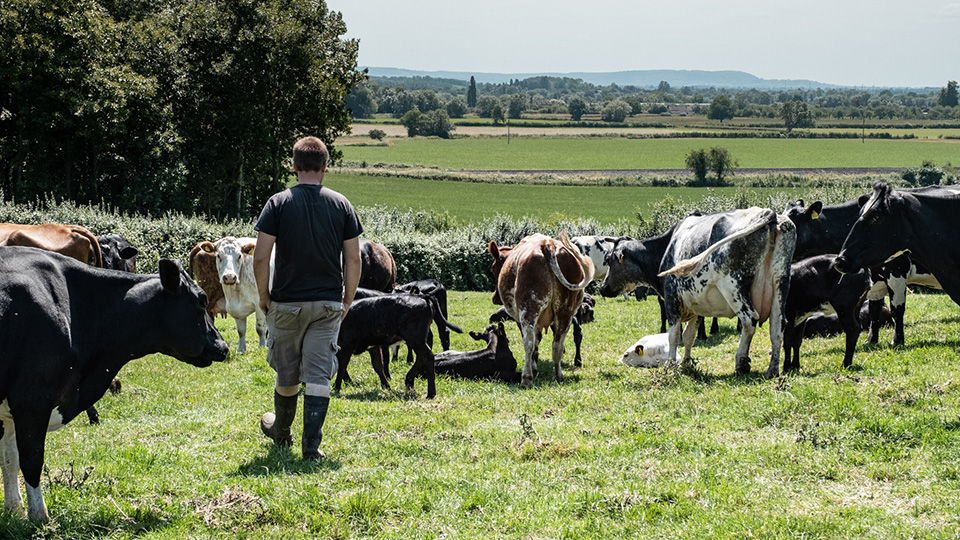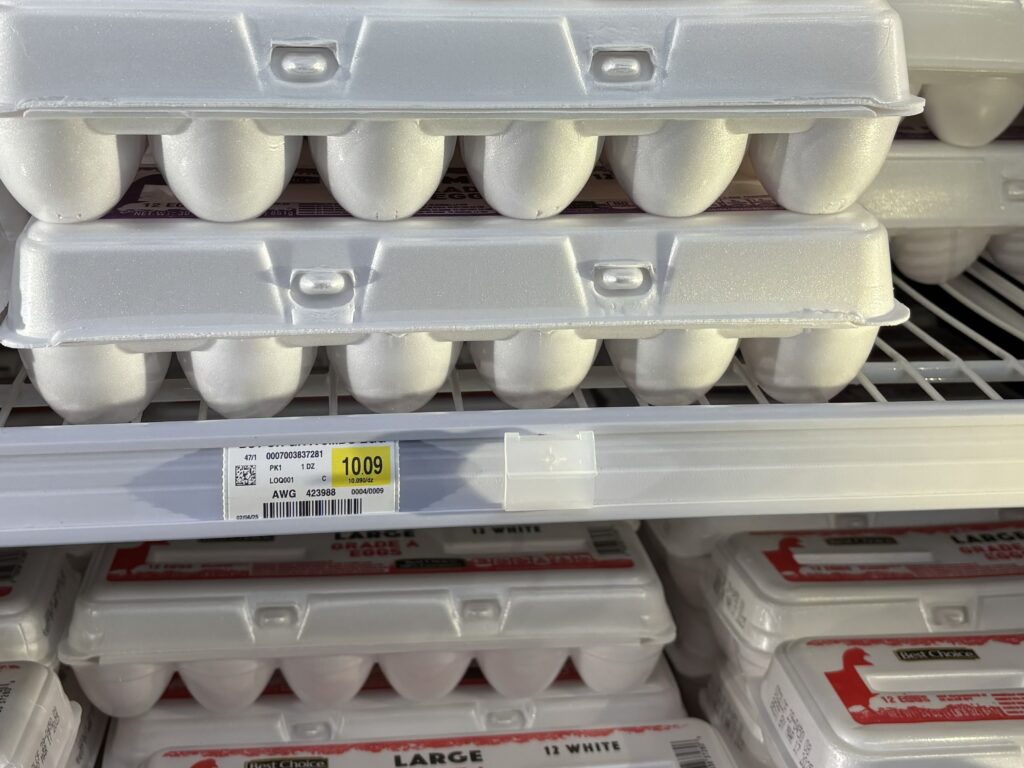Reposted from: https://www.politico.com/news/2023/09/26/biden-agriculture-monopolies-farmers-00118135
Tom Vilsack says he’s taking on Big Ag, using all the Agriculture Department’s levers to promote competition and help keep America’s small farmers and ranchers from disappearing.
But the farmers he’s trying to help are increasingly lashing out — complaining President Joe Biden’s Agriculture secretary has yet to enact a set of policies that could fundamentally alter the balance of power in the ag industry.
Vilsack, who also led the Agriculture Department in the Obama administration, is trying to shed his agency’s reputation as an ally of large agribusinesses — critics derisively call it USDA, Inc. — and pursue policies that help smaller players. The push to reverse decades of corporate consolidation in the agriculture industry, which the White House blames, in part, for Americans’ surging grocery bills, is a central plank of Biden’s economic agenda and his promise to build up the middle class. And for Vilsack and USDA, it’s serving as a test of whether they are able — and truly willing — to take on big business.
“This administration has done more than any previous administration in terms of trying to provide opportunity,” Vilsack said in an interview, emphasizing the $1 billion-plus in funding his agency has pumped into programs promoting small and medium-sized farms and agribusinesses.
Small farmers and anti-monopoly groups say the Agriculture Department’s policy changes, while helpful, aren’t aggressive enough to restore the ranks of America’s smaller farms, which have been decimated over the last half-century.
“Vilsack, he’s doing a little bit here and there but my message to all them guys, including Vilsack, is: ‘Rome’s burning, guys, we’re disappearing,’” said Chris Petersen, an independent Iowa hog farmer and former president of the Iowa Farmers Union.
“Approximately 92 percent of independent pig farmers are gone and the infrastructure for that type of agriculture is going and a lot of it is gone already.”Small farmers say the moment offers an opportunity for the USDA, Vilsack and Biden to prove whose side they’re really on.
“Folks have just been dismayed honestly at the pace at which we’ve been able to achieve some of these things,” said Jake Davis, a Missouri farmer and advocate for antimonopoly policy. “There’s some — or more than some — skepticism about intent.”
Petersen, Davis and other advocates for small farmers argue the administration needs to move faster to finalize regulations of big meatpackers and other facets of the food supply chain that would give small farmers and business owners more legal rights against meat processors, poultry conglomerates and seed and fertilizer companies that they contract with to supply their farms and get their products to markets.
They face opposition from leading companies in those spaces, powerful trade groups and those agribusinesses’ defenders in Congress, who argue the rules raise costs for businesses and consumers while crushing innovation and failing to improve farmers’ bottom lines.
The slow pace of regulatory action, three years into Biden’s term, is giving many of them flashbacks to the Obama administration, when Vilsack was secretary for the first time and USDA pursued a similar regulatory overhaul. But the agency didn’t finalize any of the rules until the end of Obama’s second term — which allowed President Donald Trump to quickly roll them back when he entered the White House in 2017. Vilsack and others at the USDA blamed that failure on obstruction from congressional Republicans, but critics also point to the agency’s own convoluted process.
In that context, Biden’s decision to tap Vilsack for an encore performance alarmed small farmers and other critics of big agribusiness.
“When Biden appointed Vilsack, I was like ‘Really? That’s all we got, we don’t have a bench?’” recalled Sarah Lloyd, a Wisconsin dairy farmer and member of the Wisconsin Farmers Union.
But Vilsack has countered some of the most dour expectations about his return to the agency. He appointed a competition czar — Andy Green, who previously worked on another significant regulation, the Volcker Rule, which governs banks’ trading activities — and ushered in a sweeping array of programs aimed at tackling the industry’s monopoly problem.
USDA and DOJ, for example, initiated an online portal for farmers to report potentially illegal anticompetitive behavior, receiving nearly 200 complaints to date. The department also authorized $15 million to encourage state attorneys general to go after corporate bad actors who flout antitrust laws and zeroed in on food supply chain resilience. That includes spending $1 billion shoring up small and midsize meat processing companies to help them compete with major meatpackers like Tyson and JBS companies that are using their clout to oppose USDA’s regulatory agenda.
“You’re taking on some of the most powerful corporations in the world,” said Dudley Butler, who was the architect of USDA’s antitrust regulatory agenda under Obama, and who criticized Vilsack then for not pushing harder to secure regulatory reforms and other wins for small farmers. Fast forward 10 years and Butler is “cautiously optimistic” Vilsack can deliver on USDA’s antitrust agenda this time. “I think he’s learned like the rest of us. It seems like it’s got a lot more ‘oomph’ behind it from the White House than it did before.”
Vilsack sees his mandate as not just going after corporate behemoths with so-called sticks, but also using carrots to encourage small and mid-sized enterprises to take action, on their own. And he blames past government ag policy for incentivizing farms to grow ever bigger, at the expense of fair competition and environmental health, such as water and soil quality. In short, Vilsack believes USDA must find a better balance between encouraging an efficient system of food production while juicing competition that he thinks will lower food costs and keep farmers in business.
“This administration is basically saying, ‘Look, we have to address this issue in a way that we can continue to be productive,’” said Vilsack in an interview this spring. “But we can also create a different system, a companion system, for small and midsize folks so they can stay in business.’”
That system includes building resilient farm-to-school pipelines, transparent food labels that command premium prices and new “value-added” opportunities for farmers, such as converting animal waste into profitable biogas.
“This isn’t just about antitrust. It’s much bigger than that,” Vilsack explained.
And yet, the anti-monopoly groups Open Markets Institute and Farm Action recently gave USDA a “C” grade on its competition work thus far, citing the lack of progress on its regulatory agenda.
“Implementing these rules is arguably the most important action USDA can take to ensure fair conduct in livestock markets,” Open Markets Institute and Farm Action wrote in their annual report card on the Biden Administration’s Commitment to Food System Competition. And because meat is such a massive part of the American agriculture system, those groups and other advocates believe spurring competition in meat markets will have a domino effect, leading to more competition across the food supply chain, from seeds to fertilizer to grocery retailers.
Without the rules, the groups fear other USDA efforts to promote competition, such as funding small, new meat processing outfits, will be wasted because big companies will just buy up any upstart competitors.“Without swift action, USDA will run out of time to make meaningful and lasting change,” the report warns.
Indeed, House Republicans introduced language earlier this year to block the proposed rules — two of which have already been introduced, with a third promised this summer and a fourth on the agenda for November — that they hope to tack onto the government spending package that Congress aims to pass this fall. White House officials have said they plan to defend the rules against Republican attacks.
Republican opponents argue the Biden administration’s regulatory agenda will create more unnecessary red tape that will make it harder for farmers to eke out a living. Instead of creating more regulations, GOP lawmakers favor things like increasing crop insurance payments for farmers who suffer crop losses and expanding public financing for small and beginning farmers.
If Republicans win back control of Congress and the White House in 2024, they would almost certainly undo any new restrictions on the agriculture industry the Biden administration might put in place at the end of its term.
Vilsack and other top officials promise that won’t happen this time.
“We have a president who is very focused on this,” the secretary said, adding that there’s “no better example” of the administration’s effort to rebuild the middle class than USDA’s pro-competition work. “It’s part of a larger narrative that this administration is writing.”
Green, USDA’s competition czar, said in an interview he’s working as many nights and weekends as he can “physically tolerate” in order to move the entire pro-competition agenda, but with a special focus on the rules. While speed is important, he emphasized that the agency also wants to make sure any new regulations can stand up to all-but-certain legal challenges.
“It’s not for lack of work, and it’s not for slow walking and it’s not for bureaucrats, you know, digging in their heels, it’s actually the opposite,” said Green. “It’s for getting it right, to make sure that it sticks.” With just a small cadre of lawyers in USDA’s competition office, that process takes time, he emphasized.
Ben Lilliston, director of rural strategies at the Institute for Agriculture and Trade Policy, a progressive group, isn’t placated by that explanation.
“The longer you take on this stuff, the more opportunities there are for Republicans in Congress to undermine them or even just eliminate them and this is the same mistake they made before,” said Lilliston. “It’s like, how serious are you about this stuff? You’ve already seen what happens when things get slowed down.”



